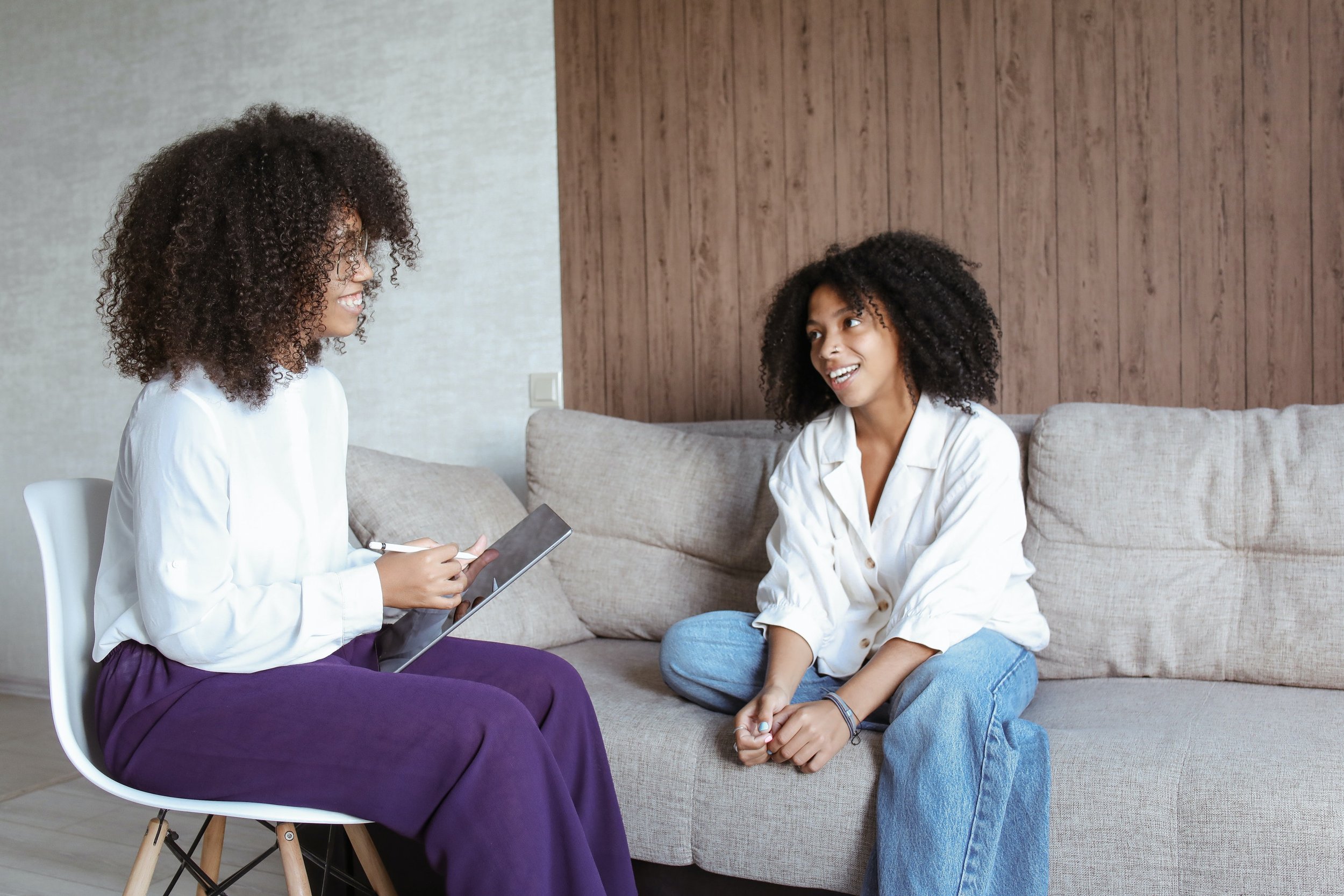Relationship Therapists Share: What are the Signs of a Codependent Relationship?
/Codependent relationships are more common than we realize. These relationships are not only present in romantic partners; but can also be a dysfunctional dynamic in friendships, parent/child relationships, and even work relationships.
Codependent behaviors generally stem from social childhood or your teen years. Some factors that can contribute to these behaviors are:
- Experiencing abuse
- Having a parent or family member who suffers from an addiction, illness, or other health impairment
- Growing up with a controlling parent or caregiver
- Experiencing abandonment
- Experiencing divorce
- Being bullied as a child
In a codependent relationship, there is a person who is a caretaker and a person who takes advantage of the caretaking behaviors. Both individuals in the relationship are dependent on the behaviors of the other, feeling like they need the other person in their lives to function.
There is a need to be needed for the caretaker, and a need to be taken care of from the other individual in the relationship. There are several indicators that you could possibly be in a codependent relationship.
Here are a few factors to help you determine if you are:
People Pleasing
Putting your needs aside to please your partner or other party in your relationship is a main sign of a codependent relationship. At first, these actions may seem like a loving gesture of compassion, but then start to spiral into an unhealthy habit. The caretaking individual in the relationship often values the opinions of others rather than listening to their own intuition or following their preferences.
They want to make others happy, in fear that others won’t love or even like them anymore if they push back or disagree. Often times, the caretaker does not like to make decisions without the approval and input of the other individual of their codependent relationship, or even others in their lives. People pleasing becomes a currency to be liked or loved by others- needing this affection from others, but especially the other person in the codependent relationship. This stems from the codependent relationship and can start to bleed into other relationships.
Lack of Boundaries
The concept of emotional (and sometimes physical) boundaries can be blurred in codependent relationships. For the caretaking individual, they may feel underappreciated by the other person; yet continue to please them and be mistreated. They may offer consistent unsolicited advice, enable inappropriate or unacceptable behavior, and sometimes even feel responsible for the other person’s actions.
For the individual who takes advantage of the caretaker, they may push the envelope in terms of boundaries. This person is typically aware of the unconditional love and support of the caretaker, so they often feel comfortable mistreating, taking advantage, and disregarding the feelings of the caretaker. Both people in the relationship can fall into a pattern of denial about their behaviors within the relationship.
Self Esteem Challenges
For the caretaking individual, their self-esteem, self-worth, and self- image usually revolves around the assurance, validation, and approval of the other party in the relationship. They lack inner trust and confidence in many cases. There is a great fear of being rejected, disliked, or viewed negatively. Sometimes these feelings evolve and creates a victim mentality. These individuals often do not like to be alone and feel comfort when in the company of others, especially the other half of the codependent relationship.
For the individual who takes advantage of the caretaker, they often have an inflated self- esteem and ego. They feel they are worthy of the consistent caregiving treatment and expect and accept nothing else.
Do you feel like you are in a codependent relationship? Are you looking to break free from the relationship patterns you have found yourself in? At Serene Mind, we are here to help. You can also email us at hello@serenemindpsych.com or give us a call at 813.321.8280 to set up an intake appointment to see if one of our therapists is a good fit for you!






